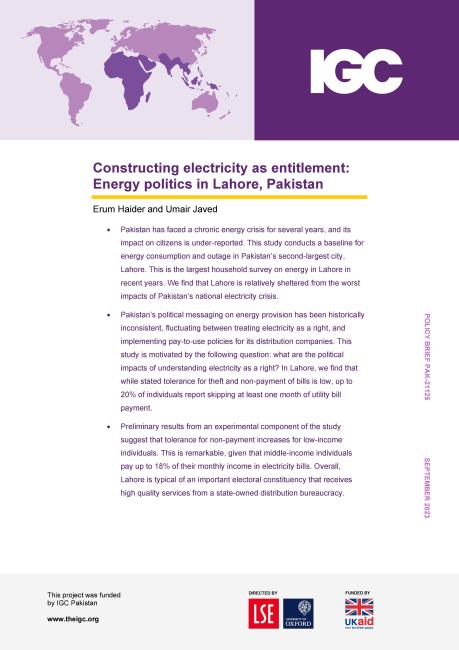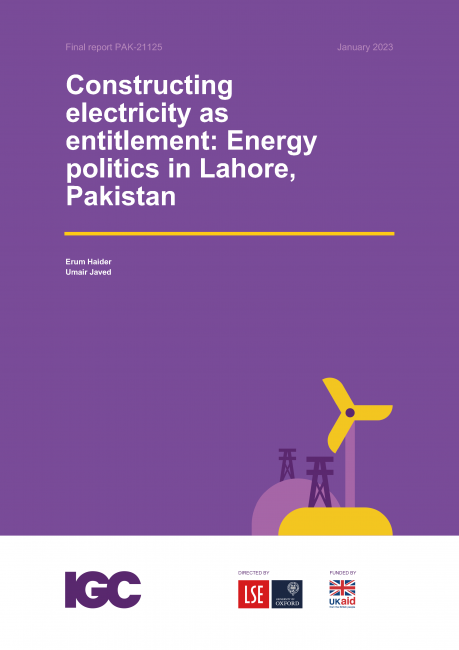Energy reform in Pakistan: Examining the public sector in Punjab
Pakistan’s plan to reform its energy sector is now in its third decade. How have some electricity distribution companies managed to provide high quality services while others have failed? This study examines the impact of reforms on public trust in institutions and within communities.
Pakistan’s plan to reform its energy sector is now in its third decade. A question that looms large over the process is how some electricity distribution companies have managed to improve their recovery from consumer, and provide high quality services, and others have failed. This study examines the impact of reforms on public trust in institutions and within communities.
This study proposes that the confluence of interest between political parties, technocrats and local stakeholders created space for greater accountability and reform in Punjab. It follows scholarship on similar reforms in municipal water supply in Mexico (Herrera 2019) and in Argentina (Post 2014) that suggests the involvement of political stakeholders for policy reform and their willingness to insulate reforms from interference is critical to successful outcomes, and finds that stop-gap measures to increase the supply of energy may have detrimental impacts on low income consumers in the long run.
This study addresses two core focus areas for IGC in Pakistan – the issue of sustainable growth in cities, and that of the growing energy needs of the country. Thirty years into Pakistan’s energy reforms, that have taken place at nearly every level of the energy generation, transmission and distribution process, a major gap in knowledge is the efficacy of major institutions in serving urban citizens.
This project is primarily focused on household-level consumption, claim/complaint-making, and service delivery. We are interested in examining how middle-income families in urban Punjab consume and pay for electricity, and how their relationship junior bureaucracy and technical staff enables them to have a quality consumer experience with household energy provision. The basis of the project will be a randomly selected representative household survey in urban Lahore, oversampling for low- and middle-income households. We are also interested in the gendered aspect of household electricity consumption and conservation, and will therefore build partnerships with the Women in Energy group to include gender-relevant questions in our survey.




